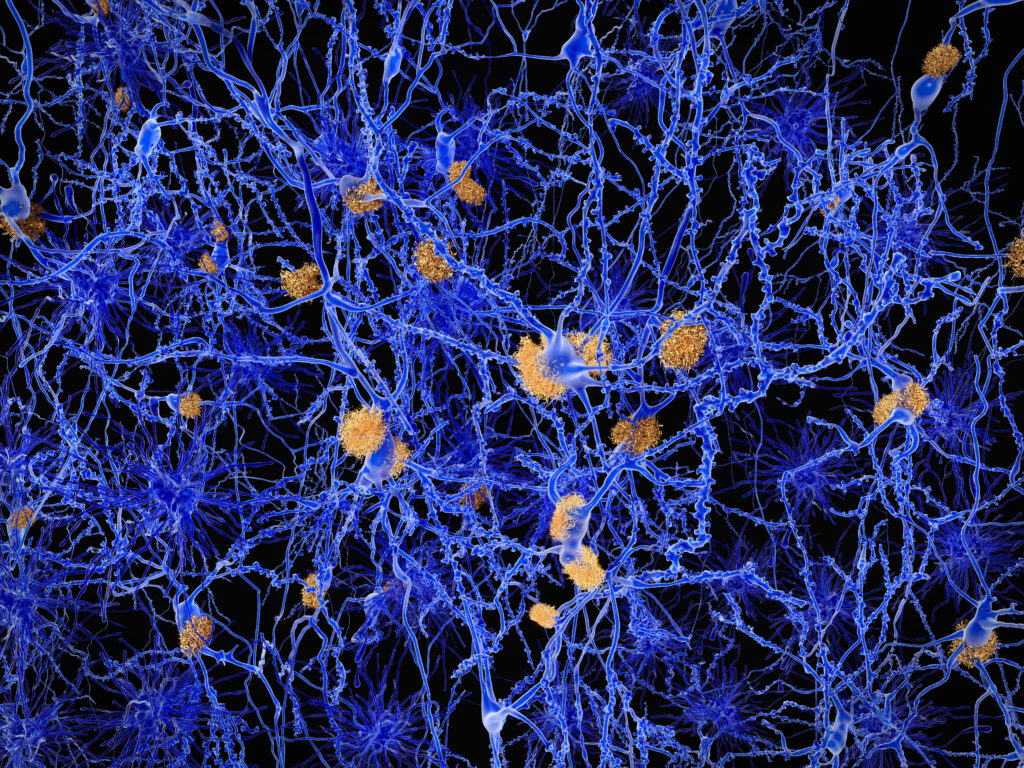Press Release
Novel treatment aims to slow down progression of Parkinson’s disease
Luxembourg kicks off PADOVA study

The Luxembourg Institute of Health (LIH) and the Centre Hospitalier de Luxembourg (CHL) announce the launch of the PADOVA Study, a clinical trial designed to evaluate the efficacy and safety of intravenous prasinezumab in participants with early stage Parkinson’s disease (PD). The trial will explore a novel treatment targeting the protein thought to be responsible for the nerve cell damage associated with the condition.
The PADOVA study, sponsored by Roche, is being conducted concomitantly in UK, Spain, Italy, Poland, US, Canada, Austria and France. The PADOVA trial will recruit a total of 575 patients across the 9 participating countries world-wide, including Luxembourg. Over the course of approximately two years, eligible participants will receive prasinezumab or placebo intravenously once per month on top of their regular PD medication. The study will be conducted at the CHL with the support of LIH’s Transversal Translational Medicine (TTM) team and relies on the clinical research expertise of the LIH Clinical and Epidemiological Investigation Centre (CIEC). Individuals who are aged between 50 and 85 years with a confirmed PD diagnosis for between 6 months and 3 years and have been receiving PD medication to treat symptoms for at least 6 months (with stable doses for 3 months) are eligible to participate.
Parkinson’s disease (PD) is a chronic progressive movement disorder that causes disability via increasing motor symptoms over time. It is caused by the premature aging and degeneration of brain cells that are specialized in the production of dopamine, which is needed to control movement. As more and more dopamine-producing cells die over time, PD symptoms like slowing of gait and trembling worsen.
The greatest challenge for researchers working in PD is to develop therapeutic approaches that slow the relentless progression of the neurodegenerative process. Current available therapies effectively mitigate the motor symptoms by essentially compensating for the lack of dopamine, however, they become less effective the more PD progresses. Therapies that target the underlying cause of the disease, however, may hold the promise to slow the clinical progression of the disease or even revert symptoms. Many so-called neuroprotective therapies have been investigated, however, all attempts to develop effective disease-modifying treatments have unfortunately failed to date.
Research from the last 20 years has shown that the alpha-synuclein protein, a natural and widespread protein in the brain, is involved in the neurodegenerative process in PD and therefore affects the release of dopamine leading finally to a loss of movement control. During the development of PD, alpha-synuclein does not fold properly and clumps together. These clumps are observed in brain areas, where nerve cells age prematurely. The clumps are also able to travel to neighbouring cells, potentially contributing to the propagation of the neurodegenerative process across different brain regions.
In this context, the Centre Hospitalier de Luxembourg and Luxembourg Institute of Health (LIH) have joined forces together with Roche Pharmaceuticals to launch the PADOVA study, an international clinical trial which will evaluate whether prasinezumab (a molecule developed by Roche in collaboration with Prothena) is able to eliminate an excess of alpha-synuclein and therefore slow the progression of PD. The investigational compound is a humanised monoclonal antibody that has been designed to target misfolded and clumped alpha-synuclein. The hope is that this therapy may help improve the health of neurons and slow the progression of symptoms in PD.
In 1998 we identified the second mutation world-wide in the alpha-synuclein gene as a cause of Parkinson’s disease and for me it is an extraordinary achievement of the international research community that, only two decades after the first identification of alpha-synuclein in PD, a specific treatment targeting this protein with pasinezumab can enter phase II clinical trials. From a scientific perspective, prasinezumab holds the promise to target the root cause of neurodegeneration in PD and may contribute to a first disease-modifying treatment of PD. This would not only bring patients affected by PD another treatment option – It could change their lives.
concluded Prof Rejko Krüger, principal investigator at CHL clinical site in Luxembourg and Director of the Transversal Translational Medicine of the Luxembourg Institute of Health.
For more information on PADOVA (BN42358), visit Clinicaltrials.gov and search for NCT04777331.
About the Luxembourg Institute of Health
The Luxembourg Institute of Health (LIH) is a public biomedical research organization focused on precision health and invested in becoming a leading reference in Europe for the translation of scientific excellence into meaningful benefits for patients.
LIH places the patient at the heart of all its activities, driven by a collective obligation towards society to use knowledge and technology arising from research on patient derived data to have a direct impact on people’s health. Its dedicated teams of multidisciplinary researchers strive for excellence, generating relevant knowledge linked to immune related diseases and cancer.
The institute embraces collaborations, disruptive technology and process innovation as unique opportunities to improve the application of diagnostics and therapeutics with the long-term goal of preventing disease.
About the Centre Hospitalier de Luxembourg (CHL)
A state-of-the-art hospital with 581 beds and a national reference centre for many disciplines, the Centre Hospitalier de Luxembourg (CHL) provides innovative diagnostic and treatment services that meet internationally recognised quality standards accredited by the Joint Commission International (JCI), as well as a teaching and research mission as a public institution. www.chl.lu







